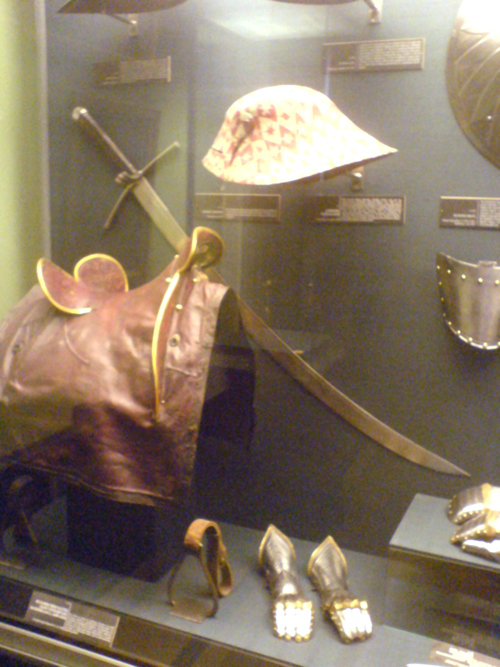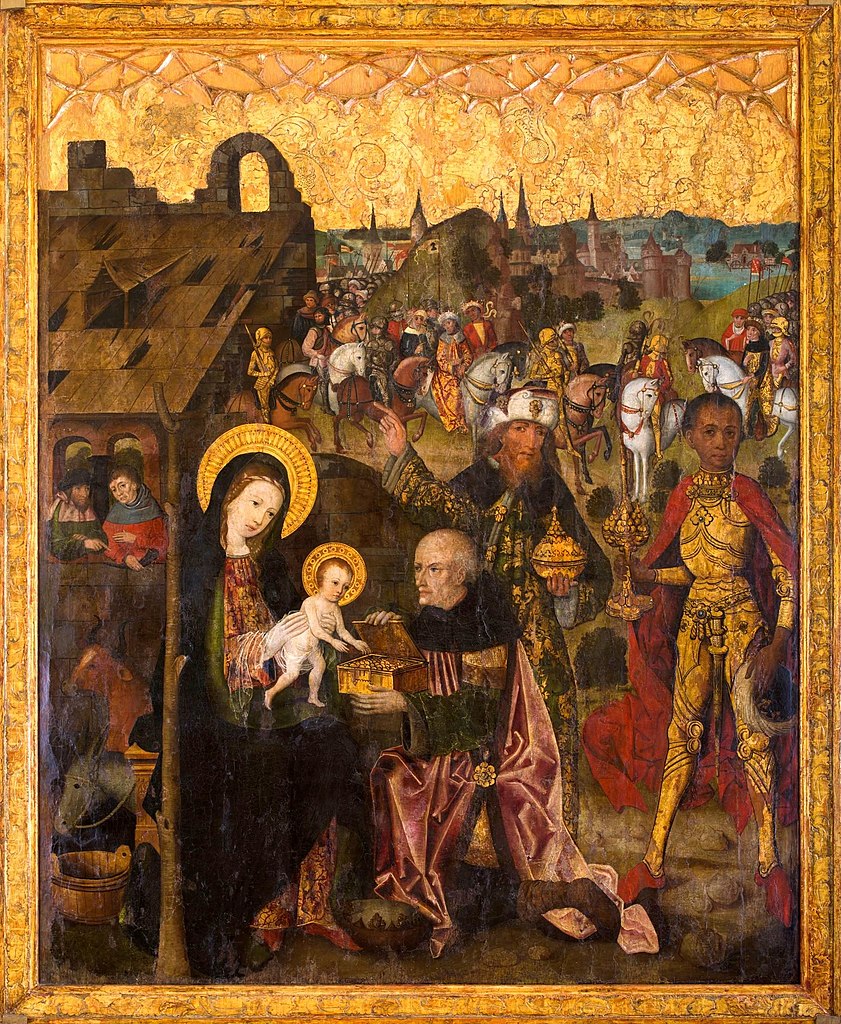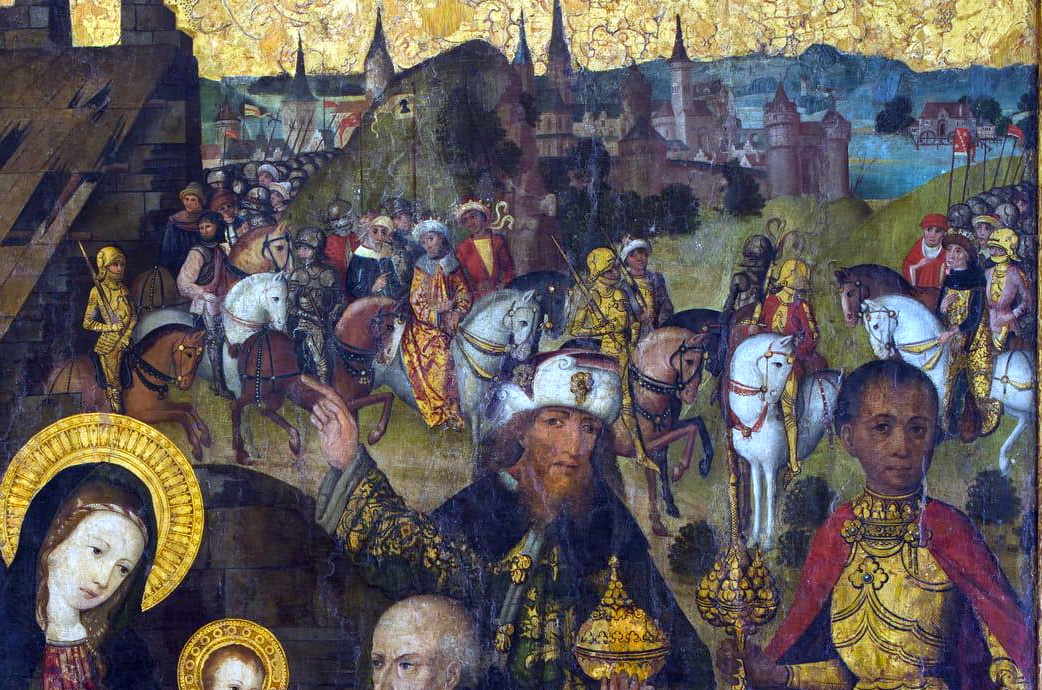Salvete Omnes
I have written a little bit about the Orsza 1514 battle - today's is yet another anniversary - and various aspects of Polish military of the early XVI century, mostly from the early winged hussars position in that battle and the greater conflict.. Today we are going to move away from the famous Orsza battle painting towards various sources from the period, predating the famous Warsaw National Museum piece.
So during this period the principal side arm of the Polish knights, men-at-arms, horsemen and of some infantrymen still was a straight sword -
 |
| Salet helmet, plate armor, 'messer sword' and long sword |
many infantrymen were using a German messer - of the longer or shorter blade, with sabre-like hilt - like the one from Vienna
Speaking about the infantry they were using crossbows
and early arquebus firearms.
Rotameisters and aristocrats, men-at-arms and knights would have worn plate armor of the older, Gothic or Italian style, or the newer Maximilian's style - like this St. George in Durer's print
Non-hussar Polish cavalry could have looked more like the Durer's knight from his famous engraving
 |
| Cornelis Van Dalem's painted version |
There is a tempera panel painting from a Krakow workshop circa 1500, now held at the National Museum at Poznan, that shows various knights and men-at-arms in plate of this turn of the century period.
enjoy - to be continued
by the way you can revisit my post about the Behem Codex - to see some period iconography from the Royal Court.
Valete


















No comments:
Post a Comment